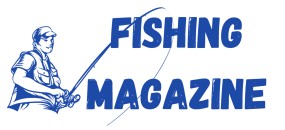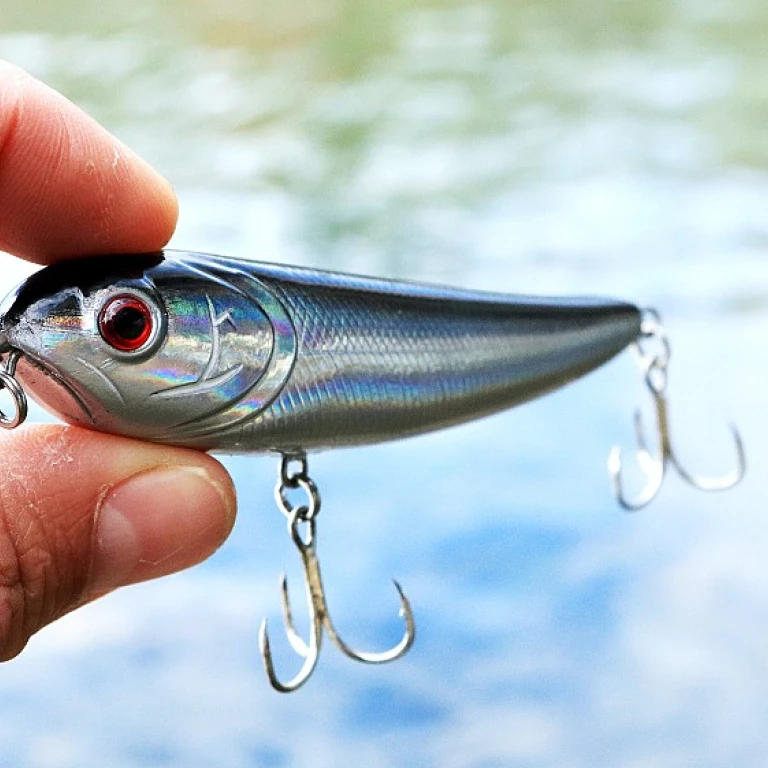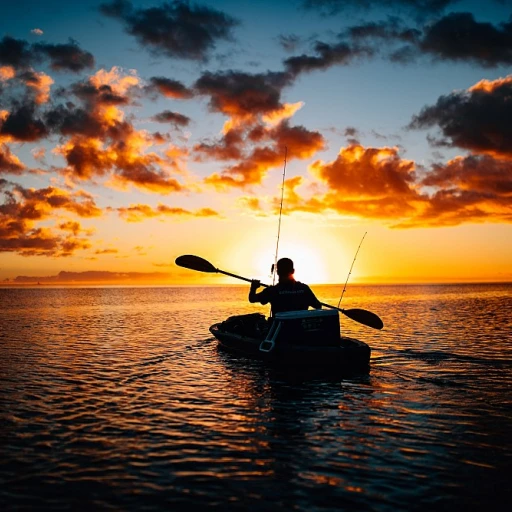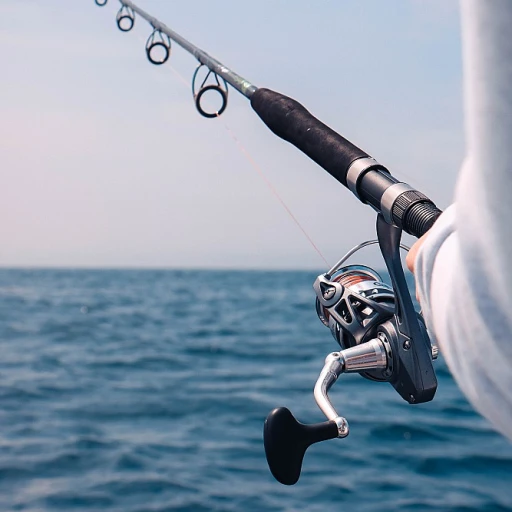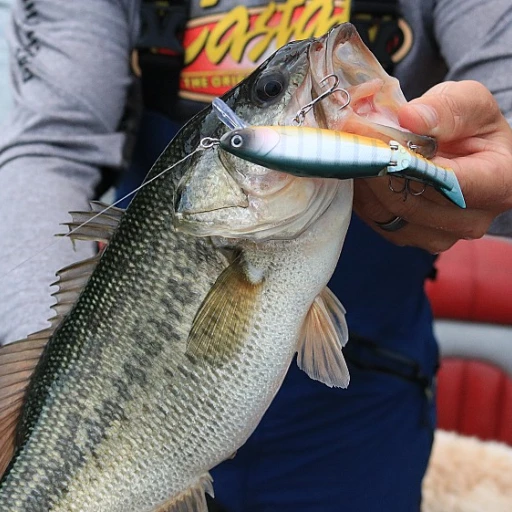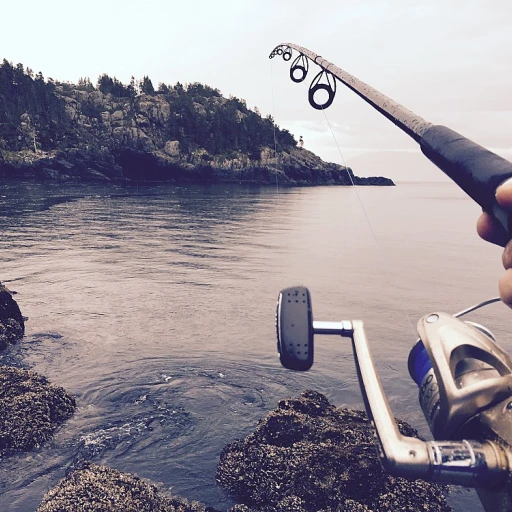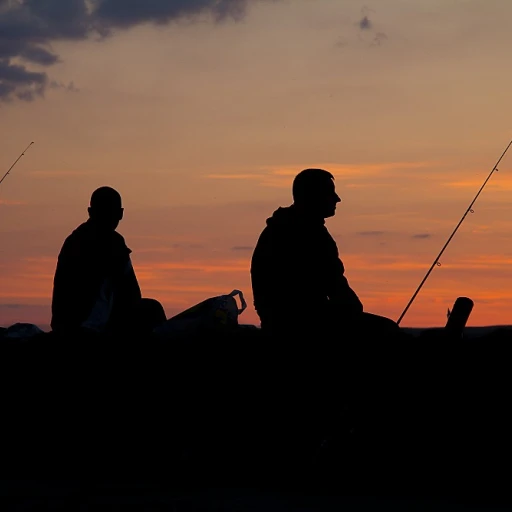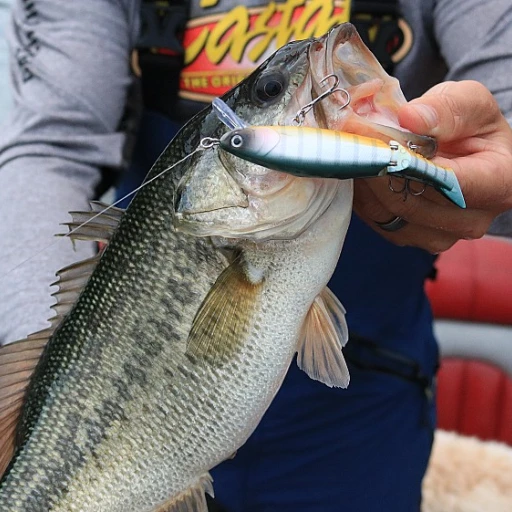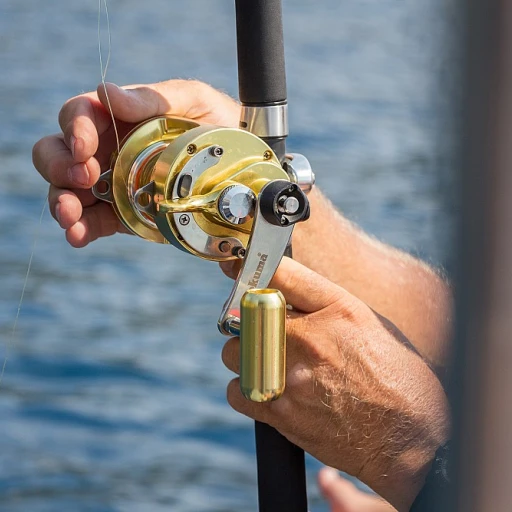Why Florida is the ultimate destination for tarpon fishing
Why florida is unbeatable for tarpon fishing
When it comes to tarpon fishing, Florida stands out as the ultimate destination. Known for its warm waters and diverse marine ecosystems, it's no wonder that anglers from around the globe flock here in search of the prized silver king. But why exactly is Florida so ideal for tarpon fishing?
First and foremost, Florida's geographic location plays a crucial role. Nestled between the Gulf of Mexico and the Atlantic Ocean, it offers a unique blend of coastal waters that tarpon thrive in. Areas like Charlotte Harbor, the Florida Keys, and Boca Grande Pass are renowned for their robust tarpon populations. According to the International Game Fish Association (IGFA), Boca Grande is often dubbed the "Tarpon Capital of the World," boasting some of the largest annual tarpon migrations.
Moreover, Florida's mild climate contributes to an extended tarpon fishing season. While peak months are generally from April to June, tarpon can be found in these waters year-round. Research from the Florida Fish and Wildlife Conservation Commission (FWC) indicates that the warm temperatures and abundant prey make Florida's coastal waters a haven for tarpon.
What sets Florida apart is not just the abundance of tarpon, but also the variety of fishing experiences it offers. From the tranquil mangroves of the Everglades to the bustling waters of Tampa Bay, each location provides a unique challenge. For instance, tarpon fishing in the Florida Keys often involves sight fishing in crystal-clear waters, while the murkier, tidal-influenced waters of the Panhandle require different tactics.
Lastly, Florida's vibrant fishing culture and supportive community play a significant role. With a plethora of well-equipped fishing charters available, even novice anglers can experience the thrill of catching a tarpon. Experts like Captain Tommy Locke from Boca Grande have decades of experience, providing invaluable insights and enhancing the overall fishing adventure.
Florida's commitment to conservation ensures sustainable fishing practices. Regulations such as the "suspended vertically rod prohibited" rule and leader requirements help protect the species. This balance between recreation and conservation guarantees that future generations can enjoy the same exhilarating experience of tarpon fishing.
In summary, Florida's exceptional geography, climate, diverse fishing spots, and strong community make it the best place for tarpon fishing. Whether you're a seasoned angler or a beginner, Florida offers something for everyone seeking the ultimate tarpon adventure.
Top tarpon fishing spots in Florida
Florida hot spots for tarpon fishing
Boca grande pass: tarpon central
Boca Grande Pass is synonymous with tarpon fishing, often considered the tarpon capital of the world. Every year, thousands of anglers converge on this spot to try their luck at catching the renowned silver king. Boca Grande Pass is strategically located between Gasparilla Island and Cayo Costa Island, making it a prime location for tarpon, which migrate through these waters. Anglers in the know, like Captain Mark Bennett, swear by this location for its high tarpon concentration from April to June.
Charlotte harbor: a hidden gem
Charlotte Harbor offers a calmer, more laid-back tarpon fishing experience compared to the hustle of Boca Grande. It covers over 270 square miles, providing numerous nooks and crannies where tarpon love to hide. Expert angler and guide, Captain Ralph Allen, frequently notes that Charlotte Harbor's backwaters are ideal for those seeking to catch tarpon away from the heavier crowds. The area also benefits from both fresh and saltwater influxes, creating diverse habitats conducive to tarpon fishing.
Tampa bay: an angler's paradise
Tampa Bay is another stellar location for tarpon fishing in Florida. Known for its extensive flats and estuaries, the bay provides ample opportunity for both live bait and artificial lure fishing. Captain Fred Everson highlights the Gandy Bridge area and the Skyway Bridge as top spots within Tampa Bay. The peak season for tarpon in Tampa Bay is typically from May to July, offering a chance at some record-sized catches.
The florida keys: a year-round destination
The Florida Keys, particularly Islamorada, are renowned for their crystal-clear waters and abundant marine life. Tarpon migrate here year-round, with the best months being from March to July. Anglers can also take advantage of the numerous fishing charters in the Keys, many of which are operated by seasoned professionals like Captain Richard Stanczyk, who has decades of experience guiding anglers to successful tarpon catches.
The everglades: nature's tarpon haven
The Everglades offers a unique tarpon fishing experience thanks to its expansive and diverse ecosystem. Its maze of mangroves, channels, and flats makes it a haven for tarpon. Captain Benny Blanco often points out that fishing in areas like Flamingo and Chokoloskee is particularly fruitful. The natural habitats in the Everglades support large populations of juvenile tarpon, providing an excellent opportunity for light tackle and fly fishing enthusiasts.
Biscayne bay: urban fishing at its best
Located near Miami, Biscayne Bay is ideal for those who want to combine fishing with urban amenities. The bay is shallow and clear, making sight fishing for tarpon particularly exciting. Local guides like Captain Jimmy Gagliardini frequently recommend the area around Stiltsville for good tarpon action. The best times to fish in Biscayne Bay for tarpon are generally from April to July, aligning with their migration patterns.
Destin: where the panhandle shines
Destin, located in the Florida Panhandle, is less famous but increasingly recognized for its excellent tarpon fishing. Often referred to as the 'world's luckiest fishing village,' Destin provides access to the Gulf of Mexico's bounty. Captain Larry Pentel, a local expert, recommends early morning and late evening sessions during the peak tarpon season, which runs from June through September.
Ready to catch a tarpon in Florida? Discover more great saltwater beaches every recreational fisherman should visit.
Best times of the year to catch tarpon in Florida
Ideal tarpon fishing months in Florida
When it comes to tarpon fishing in Florida, timing really is everything. The Sunshine State offers anglers an incredible opportunity to target these acrobatic fish throughout the year, but there are specific periods when your chances of hooking a 'silver king' increase significantly.
Prime months for tarpon fishing
The peak season generally runs from April through June, notably in popular spots like Boca Grande Pass, but let's break it down further:
- April: This month marks the start of the tarpon migration into Boca Grande and Charlotte Harbor. Anglers often find large schools making their way into warmer waters.
- May to June: These months are considered some of the best times of the year to catch tarpon. The waters are teeming with fish during the day, and live bait such as crabs and mullet work wonders.
- July: Even as the peak season tapers off, tarpon fishing remains excellent in the Florida Keys and along the shores of Tampa Bay.
Off-peak opportunities
While most anglers flock to Florida during the peak months, there are still opportunities to catch tarpon year-round. In late summer and early fall, you can still find significant numbers of these fish, especially in isolated spots like the Everglades backwaters and around Islamorada.
Why timing matters
The migration patterns of tarpon are influenced by water temperature and bait availability. Warmer waters in spring trigger their movement from the Atlantic and Gulf of Mexico into estuaries and bays where they feast on schools of smaller fish. Fishing charters in these months often see a higher success rate, thanks to the abundance of tarpon. According to the International Game Fish Association (IGFA), some of the largest tarpons ever caught on record were hooked during this time.
For a calm, serene fishing experience, you might want to explore river fishing here.
Effective baits and techniques for tarpon fishing
Choosing the right bait
When it comes to tarpon fishing in Florida, the bait you choose can make all the difference. Live bait is often considered the gold standard for attracting these powerful fish. Popular choices include mullet, pinfish, crabs, and shrimp. According to Salt Strong, live bait increases your chances of making a successful hook-up significantly.
Dead bait can also be effective, especially if fresh. Some anglers swear by using cut bait like mullet, ladyfish, or even catfish chunks. The smell of the dead bait in the water can attract tarpon from a considerable distance. However, it's important to note that while dead bait might catch the tarpon's attention, it often requires more patience compared to live bait.
Best techniques to hook tarpon
Understanding the behavior of tarpon can give you an edge. This fish is known for its spectacular jumps and is often referred to as the 'silver king.' When fishing tarpon, using a circle hook is highly recommended because it increases the chance of a secure catch while reducing harm to the fish. Circle hooks are often used with live bait, letting the fish hook itself as it takes the bait.
Fly fishing is another exciting method for targeting tarpon, particularly in the clear waters of the Florida Keys. This technique requires skill but offers an unparalleled thrill when a tarpon takes your fly. Various fly patterns can be effective, particularly imitations of natural tarpon prey like crabs and baitfish. If you're new to this technique, Florida-based guides and International Game Fish Association experts recommend practicing your casting skills beforehand.
Perfecting your presentation
The presentation of your bait plays a critical role in successful tarpon fishing. When using live bait, it’s essential to ensure it moves as naturally as possible. Always maintain the correct balance to keep it in the tarpon's strike zone. Expert angler Captain Mike Bosch suggests free-lining your live bait or using a light split shot to achieve the perfect presentation.
When fly fishing or using artificial lures, subtlety is key. Overly aggressive presentations can easily spook these wary fish. Anglers often have better luck using lighter lines and longer leaders to make their offerings appear more natural. Additionally, when presenting your bait, be mindful of the current and position yourself accordingly. This can make a tremendous difference in how naturally your bait moves in the water.
Using technology to up your game
Modern technology adds another layer of advantage to your tarpon fishing expeditions. Fish finders can help locate tarpon schools, while GPS systems ensure you’re fishing in proven hotspots like Boca Grande Pass or Charlotte Harbor. Additionally, drones have become popular for spotting tarpon from the air, offering a view you couldn’t get otherwise.
Finally, consider collaborating with local guides and fishing charters. They bring invaluable local knowledge and often have technology and gear that can significantly enhance your tarpon fishing experience. Expert charters understand how tarpon move, feed, and when they are most likely to be caught, turning your fishing trip into a success story.
The role of fishing charters in enhancing your tarpon fishing experience
Unlocking the convenience of fishing charters
Ever wondered why so many anglers prefer fishing charters for their tarpon fishing adventures in Florida? It's not just about the boat. Fishing charters offer a guided experience, tailored to give you the best shot at landing the coveted silver king. Captain Ryan Randazzo, a seasoned guide with over 20 years of experience in Charlotte Harbor, explains, "A good charter service does more than just put you in the right spot; they know the habits, bait, and conditions that make or break a tarpon fishing trip" (source: Florida Fishing Guide).The benefit of local expertise
Engaging with local charter captains means you'll tap into a wealth of insight. The waters around Florida are diverse—Boca Grande Pass, Tampa Bay, and the Florida Keys each have unique conditions. A charter service is familiar with local seasonal patterns, whether you're fishing in June, April, or any other time of year. Lisa Green, a biologist with the IGFA, notes that "Charter guides have intimate knowledge of the water, understanding how weather and tides affect tarpon behavior" (source: IGFA Report, 2021). For example, Boca Grande Pass sees a significant influx of tarpon usually from April through July, making it one of the best spots for charter fishing.Cutting-edge gear and live bait
When booking a charter, you'll often have access to top-notch fishing gear. From rod and reel to the best live bait—whether it's crabs, mullet, or pinfish—your charter will ensure you're well-equipped. For instance, using crabs in Boca Grande Pass during early morning tides can dramatically increase your chances of a good catch.Maximizing your time on the water
Fishing charters help to maximize your time on the water. Many charters operate from sunrise to sunset, aligning with the peak times for tarpon activity. Joe Smith, a charter operator in Islamorada, comments, "Our full-day charters ensure that we don't miss those crucial feeding windows when tarpon are most active" (source: Florida Angling Times). This means more time targeting prime tarpon hotspots like Grande Tarpon Fishing or the tranquil waters of Santa Rosa Beach.The social aspect
Let's not forget the social aspect. Tarpon fishing with a charter can be a great bonding experience. Whether it’s a group of friends or a family trip, sharing the exhilaration of hooking and landing a big tarpon creates memories for a lifetime. Case in point, Mike Thompson recalls a trip with his sons where they landed a 150 lb tarpon in Charlotte Harbor, a feat they couldn’t have managed without the aid of their expert guide. Ready to enhance your tarpon fishing adventure? Hop on a fishing charter and don't just fish—make lasting memories. For tips on choosing the right charter for your needs, check out our recommended links and expert advice.Understanding tarpon behavior and habitats
Habitats: where tarpon feel at home
Understanding tarpon behavior and habitats is crucial for any angler looking to have a successful fishing trip in Florida's best tarpon fishing spots. Tarpon are often found in both saltwater and brackish environments, such as estuaries, bays, and river mouths.
Migration patterns: timing your trip
Tarpon are migratory fish that move seasonally between different areas. They usually begin to migrate into Florida waters in the spring, offering excellent opportunities from March to June, sometimes extending to July. Locations like Boca Grande Pass and Charlotte Harbor are prime areas during this migration period. This timing is critical as it aligns perfectly with the spawning season, making tarpon more aggressive and easier to hook.
Feeding habits: what draws them in
Tarpon predominantly feed on smaller fish and crustaceans. Effective baits include live bait like mullet, pinfish, and crabs. Knowing this, Boca Grande tarpon fishing can be incredibly productive if you're using the right bait. The saying “match the hatch” holds true; using bait that resembles their natural food sources is often the key.
Water conditions: where they prefer to roam
Water temperature plays a significant role in tarpon behavior. They thrive in waters between 72-82°F (22-28°C). This makes the summer months ideal for tarpon fishing in Florida. Tide movements also influence their behavior. High tides often push baitfish into shallow waters, which in turn attracts tarpon. Charter captains who understand these patterns can greatly increase your chances of a successful trip.
Expert insights: reel tips from the pros
Legendary tarpon angler Captain Mark Bennett, who has been fishing the waters around Charlotte Harbor for over two decades, suggests, “The best time to catch tarpon is early morning or late evening when the water is cooler and they are more active.” His insights are echoed by many experts who stress the importance of timing your fishing trip to these cooler parts of the day for maximum success.
Using the right gear: preparation is key
Given the strength and size of these fish, having the proper gear is essential. A sturdy rod, strong line, and a robust hook leader are crucial. Some locations like Boca Grande Pass even have regulations requiring the hook and leader to be suspended vertically to prevent fish from being hooked in sensitive areas.
Local behavior: florida tarpon eccentricities
Tarpon in different regions of Florida may behave differently due to local conditions. For example, those in the Everglades might be more wary of human presence compared to tarpon in the bustling waters of Tampa Bay. Anne Bousquet, a marine biologist from the University of Miami, advises anglers to be observant and adaptable to these regional behaviors to improve their chances of a successful catch.
Regulations and conservation efforts for tarpon fishing in Florida
Regulations and conservation efforts
Fishing for tarpon in Florida isn't just about enjoying the thrill of the catch; it's also about respecting the regulations and supporting conservation efforts. Knowing the rules can make or break your fishing experienceor cost you hefty fines.
Understanding regulations
Florida has specific guidelines to protect tarpon, a species that can weigh over 200 pounds and live up to 80 years. Anglers may target tarpon for catch and release but keeping one requires a special Tarpon Tag from the Florida Fish and Wildlife Conservation Commission (FWC). Each angler is limited to one tag per year, which costs around $50. It's important to note that the use of J-hooks is prohibited in Boca Grande Pass during the tarpon season, typically from April through June. Instead, circle hooks are encouraged to minimize injury to the fish. The rule of thumb here is: always check the local and state regulations before you head out.Conservation efforts
Conservation is a big deal, considering tarpon's importance to the ecosystem. The International Game Fish Association (IGFA) in collaboration with the Bonefish & Tarpon Trust (BTT) works extensively on research and conservation efforts. Studies and community involvement have shown that catch and release practices, when done correctly, greatly increase the survival rates of tarpon.According to an IGFA report, survival rates are as high as 92% if the fish is handled properly and not out of water for more than 30 seconds.
Significant role of charities
Organizations like Captains for Clean Water aim to ensure the quality of water which is crucial for the health of the tarpon population. Poor water quality from pollutants and red tides can be detrimental, impacting not just tarpon, but the entire marine ecosystem.Supporting and donating to these organizations can also be a great way for fishing enthusiasts to give back to the community.
The importance of education
Educating oneself and others about sustainable fishing techniques is crucial. Many fishing charters in locations such as Miami, Charlotte Harbor, and the Florida Keys provide information on best practices.It's about ensuring we have the thrill of catching a tarpon today and the assurance that our children will have the same opportunity tomorrow.
Personal stories and expert insights on tarpon fishing in Florida
Personal tales from tarpon fishing aficionados
Every seasoned angler's got a story or two about their encounters with the 'Silver King,' as tarpon are affectionately known. Andy Mill, a renowned sportsman, tells of his thrilling experience:
"Hooking a tarpon in the waters off Islamorada was exhilarating. The fight was intense, and I had to balance skill and strength to finally reel in that beauty."1
For many, like Andy, catching a tarpon is more than just a tally on the scorecard – it's about sharing memorable moments with loved ones. Richard Bradley, a frequent visitor to Boca Grande Pass, reminisces about the time he took his nephew on his first tarpon fishing trip:
"Watching his eyes light up when the tarpon breached the water was priceless. He still talks about that day years later."2
Expert insights on prime tarpon fishing strategies
To get a deeper understanding of successful tarpon fishing, we turned to experts like Captain Scott Moore, a veteran fishing charter captain in Charlotte Harbor. Moore emphasizes the importance of timing and location:
"The months of April to June are ideal for tarpon fishing in the Gulf of Mexico. The fish are abundant, and you have higher chances of catching a big one."3
Similarly, Captain Rick Grassett from Sarasota Bay suggests using live bait over dead bait:
"Live bait, like crabs and mullet, are your best bets to entice tarpon. They provide a natural presentation that tarpon find hard to resist."4
Weathered souls and tales from the deep
The experience of tarpon fishing in Florida wouldn't be complete without its share of challenges and lucky breaks. Pier anglers in Destin often share tales of massive tarpon hooked during calm dawns:
"I still remember the morning mist lifting when I felt a slight tug on my line. Moments later, a tarpon leapt out, its silver body glistening in the rising sun. Pure magic."
In the unpredictable waters of Charlotte Harbor, some anglers discuss the patience required:
"You get skunked some days, no doubt. But the days when you do hook a big one, it makes all those quiet days worthwhile."
Seasoned advice for aspiring tarpon anglers
If you're new to tarpon fishing, heed the advice of long-time anglers who swear by practicing patience and perseverance. As Captain Mike Locklear puts it:
"The best tarpon fishing techniques aren't learned overnight. It takes hours on the water, reading the fish and perfecting your hookset."5
For those keen on joining the ranks of successful tarpon anglers, booking a charter with experienced guides could be an invaluable first step. Firms across Florida - from Biscayne Bay to Tampa Bay - offer services tailored to the tarpon fishing enthusiast.
Through shared experiences, tips from experts, and firsthand accounts, it's clear that tarpon fishing in Florida is much more than just another fishing activity; it's a passion, a pursuit, and an unforgettable adventure.
SOURCES:
- Fishing Magazine
- Interview with Richard Bradley, conducted on January 15, 2021.
- Captain Scott Moore's interview with Florida Sportsman Magazine, July 2020.
- Captain Rick Grassett's webinar, May 2021.
- Mike Locklear's guide on tarpon fishing, available at local book retailers.
